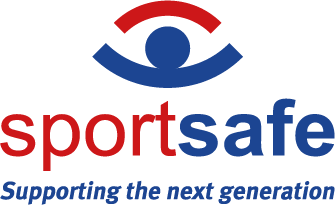No products in the basket.
Through sport, we definitely have the chance to create a ‘pond’, suited to every fish, where they can ‘swim’, thrive and reach their true potential.
‘…If you judge a fish on its ability to climb a tree, it will live its whole life believing that it is stupid.’ – Albert Einstein
‘Adaptive sports programs for children with disabilities can include competitive or recreational sports activities. They are just like typical sports activities, except they allow modifications that are needed for people with disabilities. Adaptive sports programs give individuals with disabilities an opportunity to embrace teamwork and connect with their community.
Adaptive sports programs are very important to children with disabilities because they help them embrace physical activity. Staying physically active is a critical component to maintaining lifelong health.’
‘Creating sports programs that include everyone is not only a moral duty, but also a smart way to attract and retain diverse participants, staff, and sponsors. Inclusive sports programs can foster positive social interactions, promote health and well-being, and enhance the reputation and image of your organization.’
Making sport accessible to everyone is not merely a patronising philanthropic kindness on the part of the able-bodied; it opens a whole new world of shared experience, empathy and learning through different perspectives and the discovery of hidden talents. ‘There is widespread agreement that physical activity brings benefits to all who participate, including significant and long-lasting gains to psychomotor and sensory development, physical health, emotional well-being, and social integration for students with special educational needs and disabilities.’
Fortunately, there is a plethora of talented teachers, mentor-orientated managers and active agencies who are passionate about inclusivity through sport and find the challenge of adapting sports programmes exciting and inspirational rather than a ‘problem’.
‘Access Sport’s Disability Inclusion programme aims to transform the lives of disabled young people and their families, using the power of sport and physical activity to combat discrimination and exclusion, with a strong focus on deprived communities. We want to create equal opportunities for disabled and non-disabled people to participate together in their local communities.’
Activity Alliance is a charity which helps people with a disability make active lives possible, by enabling organisations to support individual disabled people to be active and stay active for life. Activity Alliance work closely with many organisations, including Sport England, the National Disability Sport Organisations and national governing bodies of sport. They also work with regional, coaching and education networks, including the County Sports Partnerships, clubs and schools.
Activity Alliance work on a number of programmes from; Get Out Get Active, inclusive activity training, inclusive events and much more.
The Youth Sport Trust (YST) is a children’s charity working to ensure every child enjoys the life-changing benefits that come from play and sport. Their work reaches around 20,000 schools across the UK and they operate on a local, national and global level. They lead in schools, partner in the community and support in the home. Youth Sport Trust has a dedicated Inclusion team, striving to ensure young people have the opportunity to participate in PE and Sport, regardless of their background, ethnicity, gender, ability or any other personal characteristic.
So, there is a lot of dynamic help out there in the form of experienced organisations keen to foster the inclusion and empathy that opens up sport for everyone, for the benefit of everyone… but how can this positive energy and approach become part of every school’s own daily sports and PE curriculum?
The Physical Education, School Sport and Physical Activity (PESSPA) team in every school is at the forefront of discovering every pupil and student’s potential and fostering the desire for inclusivity and sense of empathy in the school community… but they may need a little help or the ability to ‘think outside the box’.
Along with effective individual education, health and care plans (EHCP), relevant auxiliary aids, additional support staff and appropriate changing facilities, inclusive PE involves thinking about aspects such as:
- Adapting the activity and differentiation to enable participation by all at their own level. For example, allow archers to shoot at shorter distances, at larger targets, and with the use of adaptive equipment; allowing athletes who use wheelchairs to throw from field chairs; allowing runners with visual impairments to run with a sighted guide. https://www.childbirthinjuries.com/blog/adaptive-sports-program/
- Adapt the environment and equipment. For example, for wheelchair users, provide shorter sticks and slower pace balls; for visually impaired pupils, use balls with bells, brightly-coloured tape for floor markings and accurate spatial instructions; encouraging the use of carbon fibre prosthetics and braces for athletes with limb differences; enable athletes who use wheelchairs to race in specially designed racing chairs; check surfaces are level.
- Safety and comfort of all participants – for example, allow glasses or peaked caps and be aware of the position of the sun during outdoor activities for the visually sensitive; allow a cool down and relax before next lesson; set achievable targets; vary activities regularly.
- Specific evacuation plans for emergencies – repeat instructions and physically demonstrate exit routes.
- A Buddy system for shared responsibility and empathy amongst all students.
- Awareness of relevant medical information and what is ‘normal’ for each student. Notice changing moods and symptoms of possible asthma, diabetic, epileptic etc attacks.
‘The benefits of adaptive sports for children with disabilities are immeasurable. First and foremost, adaptive sports programs keep children physically and mentally active. They also allow for socialization with other children, adults, and coaches.’
An inclusive and empathetic approach to PE in schools through adaptive programmes and open-minded teaching is, ultimately, beneficial for all – not just the ‘fish’ who might otherwise be forced to ‘climb a tree’! Every student can learn from another and adapting the ‘pond’ to suit everyone’s talents can only broaden the learning experience and expand the opportunities for all.

